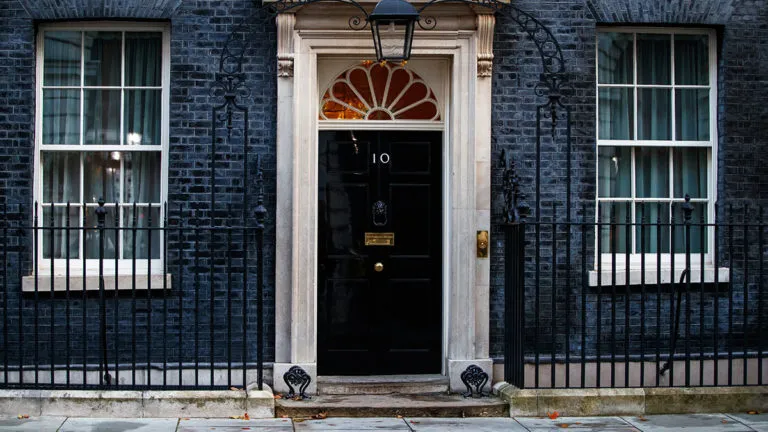The government’s new rough sleeping figures only give one part of the picture – these are the numbers you need to know
Published: by Polly Neate

4,266 people – nine per cent fewer than last year – slept rough on a given night. But the methodology is tricky.
At the start of this week, there was a truly upsetting report looking at the deaths of homeless people sleeping in bins. It was one of those viscerally awful stories that surely means you can’t ignore the human cost of the housing emergency.
This horror story was followed by new BBC research on Wednesday looking at the number of people sleeping rough who are not picked up by the government’s own count. The BBC’s Freedom of Information requests found 25,000 people were recorded sleeping rough at least once in England during the last year. Rough sleeping is highly dangerous. That’s 25,000 people risking their lives on the streets.
This laser focus on rough sleeping has not let up. The Prime Minister took a stand last night to show he is serious about ending the ‘scourge’ of street homelessness. He announced a further £236m to add to the existing rough sleeping strategy to help get people into move-on accommodation and appointed Dame Louise Casey to investigate the root causes. Welcome news.
Then came the Government’s own statistics this morning, the annual count which showed 4,266 people – nine per cent fewer than last year – slept rough on a given night last autumn.
It can only be a good thing if fewer people are facing the trauma of the streets. So, does this mean the government’s rough sleeping strategy has been showing early signs of success?
Well, yes and no.
First, a word of warning, the number of people sleeping rough remains well over double what it was in 2010, when it was first recorded. What’s more, the methodology is tricky. The count takes place on one night, so it’s only a snapshot and is almost definitely a gross underestimate. Some people will be missed out simply because they chose to sleep on a bus that night or out of sight in a derelict building.
Second, you need to look at the bigger picture. Rough sleeping is only the tip of the iceberg – there are a further 276,000 people officially recorded as homeless in England. This includes 126,000 children. Children in emergency hostels and B&Bs or living a precarious existence in unstable temporary accommodation. The rough sleeping strategy does nothing to make sure they grow up in a safe home, despite this being a fundamental human need on which physical and mental health, success in education and later happiness very often depend.
The housing conditions my Nan used to speak of as a history lesson are once again a fact of everyday life.
And last, but most important, emergency measures to get people off the streets quickly and Housing First schemes can only go so far, if you don’t have the right homes to back them up.
There is no great secret or mystery about what is causing this emergency. As we see in our services day in and day out, most people are tipped into homelessness simply because there are not enough affordable, safe, and secure homes in this country.
You cannot put a temporary plaster on a life-threatening condition. A hostel room is not a permanent home. To prevent someone returning to the streets, the availability of permanent and genuinely affordable social homes is crucial.
Serious investment in social housing is what we simply must see from this government. Otherwise, it will be impossible to eradicate homelessness for good.
The upcoming budget is the perfect opportunity for the government to future-proof against the horrors of homelessness – whether that’s rough sleeping or families trapped in temporary accommodation – by investing in a new generation of social homes. It is also the right time to increase housing benefit so that it at least covers the basic cost of private rents. Overnight, this would prevent thousands of people from losing their homes.
The lives of people who are sleeping rough, staying in a homeless hostel, temporary accommodation, or sofa-surfing are stuck on pause. Given the numbers, the impact on our country and our society has now reached emergency levels. We urge the government to hit the play button and give them what they need: a safe home.
I can’t get the image of people forced to sleep in a bin and dying in the back of a rubbish lorry out of my head, can you? It can be prevented, but the truth the prime minister must face is that his current answer doesn’t cut it.